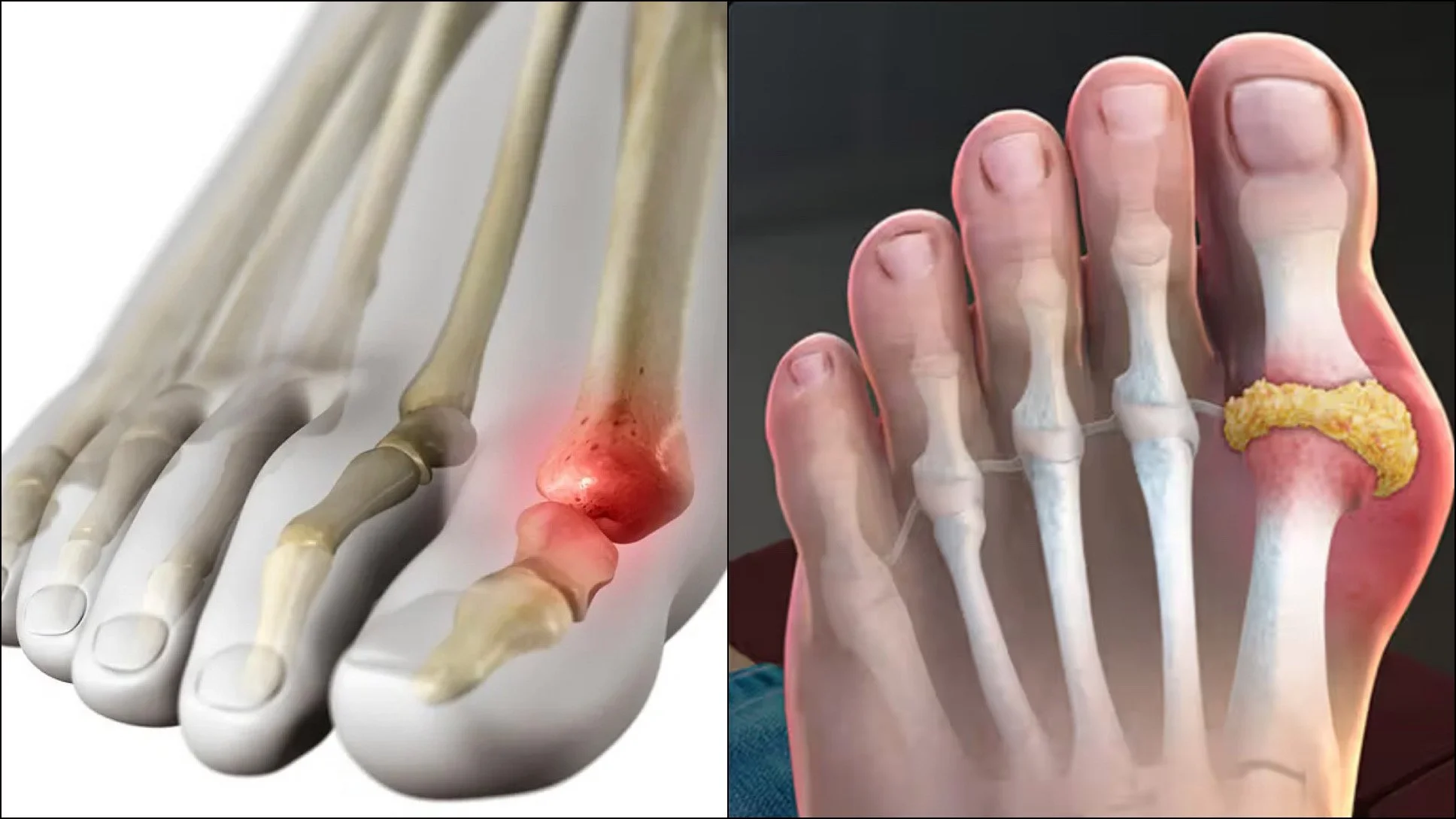The Specific Carbohydrate Diet (SCD): A Forgotten Solution for Gut and Brain Health
I first learned about the Specific Carbohydrate Diet (SCD) through the book Gut and Psychology Syndrome (GAPS) by Dr. Natasha Campbell-McBride, MD. In it, she explains how the SCD was originally used to successfully treat celiac disease before it was officially defined as a “gluten intolerance.” Prior to this shift, celiac patients followed the SCD and experienced full recovery—not just from gluten intolerance, but from a wide range of gut disorders.
The medical textbook The Management of Celiac Disease by Dr. Sidney V. Haas and Merrill P. Haas written in 1951, documented how the SCD was once widely accepted as a cure for celiac disease. However, when the term “gluten-free” became the standard approach, the root causes of gut dysfunction were overlooked, and the broader benefits of the SCD were largely forgotten.
Today, the SCD is making a resurgence not only as a tool for healing the gut but also as a powerful intervention for mental health. Research and clinical experience now link leaky gut to leaky brain, showing that gut dysfunction plays a major role in autism, ADHD, anxiety, depression, and other neurological conditions. By restoring gut integrity, the SCD supports both digestive and cognitive health, making it an essential approach for anyone struggling with chronic gut or brain-related issues.
Who Can Benefit from the SCD?
This diet is particularly effective for individuals with:
✅ Celiac Disease – Especially those who continue to have gut symptoms despite a gluten-free diet. The SCD restores gut lining integrity, improving nutrient absorption and long-term healing.
✅ Leaky Gut Syndrome – By removing gut-irritating foods, it helps seal a compromised intestinal barrier, preventing the escape of toxins and undigested food particles into the bloodstream.
✅ Psychological & Neurological Disorders – The gut-brain connection means that gut dysfunction contributes to autism, ADHD, anxiety, depression, schizophrenia, and even cognitive decline. The SCD reduces inflammation and improves neurotransmitter balance by healing the gut.
✅ Inflammatory Bowel Disease (IBD) – Used to manage Crohn’s disease and ulcerative colitis, helping to reduce flares and inflammation.
✅ Irritable Bowel Syndrome (IBS) – Helps alleviate bloating, diarrhea, and constipation by reducing fermentable carbohydrates.
✅ Small Intestinal Bacterial Overgrowth (SIBO) – Limits bacterial overgrowth by eliminating fermentable fibers and starches that feed bad bacteria.
How the SCD Works
The SCD removes complex carbohydrates that require extensive digestion, ferment in the gut, and feed harmful bacteria and yeast. Instead, it focuses on easily digestible, nutrient-dense foods that allow the gut to heal while maintaining microbial balance.
Foods to Eat (SCD-Legal) ✅
✔️ Protein: Grass-fed meat, organic pastured poultry, wild-caught fish, free-range eggs
✔️ Vegetables: Most non-starchy vegetables
• Leafy Greens: Spinach, kale, swiss chard, romaine lettuce, arugula, collard greens.
• Cruciferous Vegetables: Broccoli, cauliflower, brussel sprouts, cabbage
• Limited Root Vegetables: Carrots, parsnips, turnips, rutabaga, beets.
• Low-Carb: Zucchini, cucumbers, asparagus, green beans, celery, bell peppers, mushrooms, radishes, fennel.
• Higher-Carb (limited): Carrots (best cooked), butternut, acorn, and spaghetti squash, onions.
✔️ Fruits: Ripe bananas, berries, apples, pears, grapes, citrus fruits, mangoes, fresh pineapple.
✔️ Lactose-Free Dairy: Homemade 24-hour fermented yogurt, aged cheese (the fermenting bacteria consume lactose, making these dairy products SCD-compliant)
✔️ Nuts & Seeds: Almonds, walnuts, pecans, coconut flour
✔️ Healthy Fats: Olive oil, coconut oil, ghee, butter
✔️ Natural Sweeteners: Honey (in moderation)
Foods to Avoid (SCD-Illegal) ❌
❌ Grains & Grain-Based Foods: Wheat, rice, oats, corn, quinoa, bread, pasta, cereals, tortillas
❌ Starches: Potatoes (all types), sweet potatoes & yams, peas, cassava, taro, arrowroot
❌ Legumes: Beans, lentils, soybeans and all soy containing products
❌ High-Starch Fruits: Unripe bananas & plantains, figs, cranberries, melons, commercial fruit juices, canned & dried fruits with sugar or preservatives.
❌ Refined Sugars: Table sugar, high-fructose corn syrup, agave nectar, maple syrup, coconut sugar, molasses
❌ Artificial Sweeteners: Sucralose (splenda), aspartame (equal, nutraSweet), saccharin (sweet’N Low)
❌ Non-Caloric Natural Sweeteners: Stevia, monk fruit extract, sugar alcohols (xylitol, erythritol, sorbitol)
❌ Processed Foods: Packaged snacks, canned soups, fast food
❌ Dairy (Except 24-hour Fermented Dairy): Milk, cheese (unless properly fermented), cream
The Gut-Brain Connection: Healing the Brain by Healing the Gut
Modern research confirms that gut health directly affects brain function, supporting the idea that conditions like autism, ADHD, anxiety, and depression stem from gut dysbiosis and inflammation.
🔹 Leaky Gut = Leaky Brain – When the gut barrier is compromised, inflammatory compounds and toxins enter the bloodstream, triggering neurological symptoms such as brain fog, anxiety, and depression.
🔹 Microbiome & Neurotransmitters – The gut microbiome produces serotonin, dopamine, and GABA, which regulate mood and focus. An imbalance in gut bacteria disrupts these critical brain chemicals.
🔹 SCD Restores Balance – By eliminating gut-irritating carbohydrates and fermentable fibers, the diet reduces gut inflammation, stabilizes the microbiome, and improves brain function.
This is why the SCD is a foundational part of treatment for GAPS patients, as it supports neurological and psychological healing through gut restoration.
How long is the SCD recommended for?
The SCD is typically recommended for at least one year, but the exact duration depends on individual healing progress and symptom resolution.
General Guidelines for How Long to Follow SCD:
✔ Minimum: 6 months after symptoms disappear to allow full gut healing.
✔ Recommended: One year or longer for those with chronic conditions like IBD, celiac disease, SIBO, or neurological disorders (autism, ADHD, anxiety, etc.).
✔ Severe Cases: 2+ years for those with persistent inflammation, autoimmunity, or long-standing digestive issues.
How to Know When You Can Start Reintroducing Foods
✅ No digestive symptoms (bloating, diarrhea, constipation, gas, pain)
✅ Stable energy levels and improved mental clarity
✅ Stronger immune function and reduced inflammation markers
Many people stick to a modified version of the SCD long-term, keeping out major gut disruptors like grains, processed foods, and refined sugars but reintroducing well-tolerated whole foods.
Example SCD Sample Meal Plan:
Day 1
Breakfast:
🥑 Egg & Avocado Scramble
• 2 pasture-raised eggs scrambled in ghee
• ½ avocado sliced
• Side of sautéed spinach in olive oil
☕ Herbal Tea or Black Coffee (optional)
Lunch:
🍗 Grilled Chicken & Zucchini Noodles
• Grilled organic chicken thighs with lemon & fresh herbs
• Zucchini noodles sautéed in garlic & ghee
• Side of fermented vegetables (sauerkraut)
Dinner:
🐟 Salmon with Roasted Cauliflower Mash
• Baked wild-caught salmon with butter & dill
• Roasted cauliflower mashed with ghee & sea salt
• Steamed asparagus with lemon
Snacks (If Needed):
• Handful of macadamia nuts or walnuts
• Coconut yogurt (24-hour fermented) with cinnamon
Day 2
Breakfast:
🥓 Bacon & Mushroom Omelet
• 2 eggs cooked in duck fat or coconut oil
• Sugar-free pasture-raised bacon
• Mushrooms & onions sautéed in ghee
Lunch:
🥩 Grass-Fed Beef Burger with Avocado Mayo
• 100% grass-fed beef patty (no bun)
• Topped with homemade avocado mayo
• Side of butter lettuce & cucumber salad with olive oil
Dinner:
🥘 Lamb & Spinach Stew
• Slow-cooked lamb shoulder with bone broth
• Sautéed spinach & garlic
• Side of roasted Brussels sprouts
Snacks (If Needed):
• Boiled egg with sea salt & olive oil
• Brazil nuts (for selenium & thyroid support)
Day 3
Breakfast:
🍳 Poached Eggs & Smoked Salmon
• 2 poached eggs
• Wild-caught smoked salmon
• Arugula & avocado drizzled with extra virgin olive oil
Lunch:
🍗 Lemon Garlic Shrimp with Cauliflower Rice
• Sautéed wild-caught shrimp in garlic & butter
• Cauliflower rice with fresh cilantro & lime
• Side of fermented carrots
Dinner:
🥩 Slow-Cooked Short Ribs with Garlic Butter Broccoli
• Grass-fed beef short ribs braised in bone broth & fresh herbs
• Steamed broccoli tossed in garlic butter
• Side of sautéed kale
Snacks (If Needed):
• Homemade coconut yogurt with chopped pecans
• Apple slices with cashew or almond butter
Summary
The Specific Carbohydrate Diet (SCD) is not just another diet—it is a therapeutic approach to healing the gut and restoring overall health. Originally used as a treatment for celiac disease, it remains one of the most effective ways to address gut disorders, autoimmune conditions, and neurological imbalances.
By eliminating gut-irritating carbohydrates, inflammatory foods, and artificial additives, the SCD helps to:
✔ Rebalance gut bacteria and eliminate harmful pathogens
✔ Seal the gut lining and reduce systemic inflammation
✔ Improve digestion and nutrient absorption
✔ Support brain function by strengthening the gut-brain connection
If you have been struggling with digestive issues, autoimmune conditions, or neurological symptoms, this diet provides a science-backed and clinically proven way to reclaim your health.
Healing takes time, but small, consistent changes lead to lasting results. If you’re ready to take control of your health, the Specific Carbohydrate Diet is a powerful place to start.



